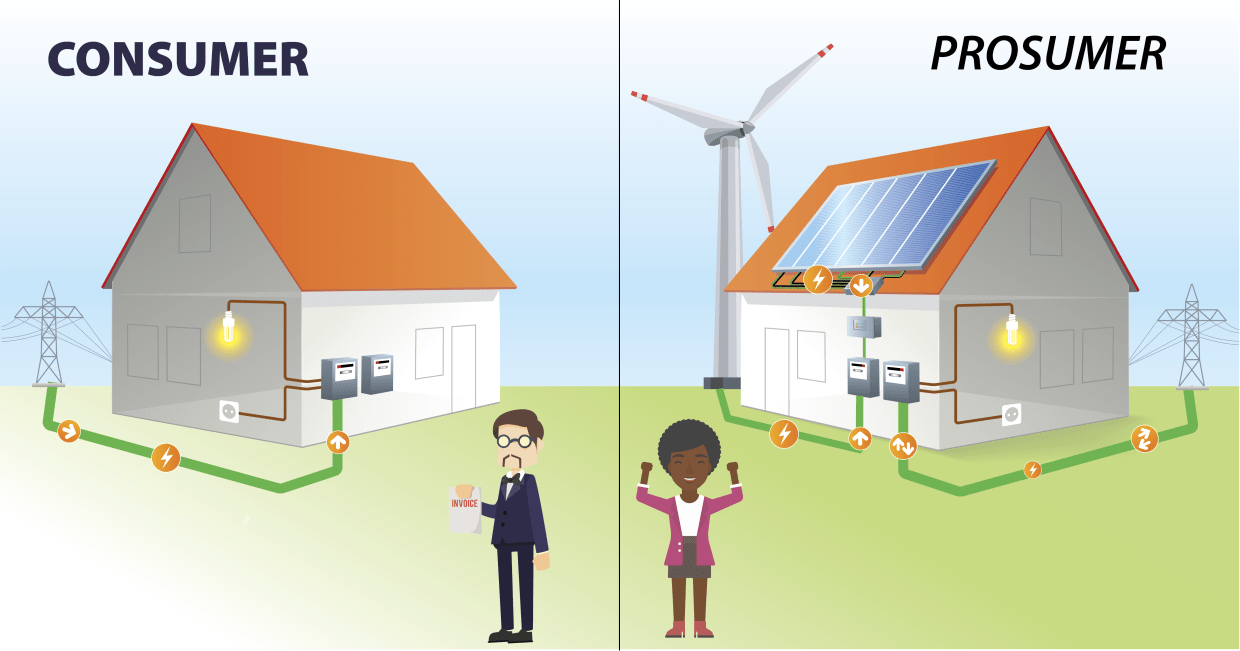Four fast facts that every solar prosumer should know.
Office of Energy Efficiency & Renewable Energy
August 2, 2017Not too long ago, electricity worked as a one-way street—utilities produced energy and people consumed it. Solar energy has changed that model, enabling people who install solar panels on their rooftops to consume the energy generated and sell the rest of it back to utilities. This turns consumers into prosumers—people who both produce and consume energy.
Here are four fast facts about what it means to be a solar prosumer.
1. Prosumers don’t need to produce 100% of the electricity they consume
The solar panels on a homeowner’s rooftop might not produce all of the energy a home needs to function each day. Energy generation also depends on the season. For example, homes consume more energy for cooling in the summer and heating in the winter than they do in the spring or fall. This means that the solar energy being produced doesn’t have to equal the demand at all times; the solar may cover a portion, all, or more than a consumer’s load. This is especially true for people who have smaller rooftops. That’s why solar prosumers still connect to the grid and rely on utilities to balance supply and load just like other electricity consumers.
2. Prosumers don’t sell solar energy to other consumers
When prosumers produce more energy than they can use, the excess is sent back to the grid to be managed by the utility. However, not all the excess energy is captured back on the grid because the grid was initially built for power to go only one way. The U.S. Department of Energy’s Grid Modernization Initiative is working to change this by enabling power to flow on a two-way superhighway rather than a one-way street. This includes funding the development of new transformer technology that will allow larger volumes of solar-generated energy from rooftop installations scattered across a utility’s territory to be utilized efficiently onto the grid.

Read More
3. Businesses can be considered prosumers, too
Solar panels aren’t just made for homes. Businesses can use rooftop or on-site solar energy arrays to help offset a variety of expenses. Solar can also be used in conjunction with combined heat and power, which is useful for industrial and large commercial facilities. This technology allows businesses to use the heat that would normally be lost in the power generation process to be recovered for use in heating or cooling, taking business prosumer cred to the next level.
4. Prosumers can save money
Switching to solar can help balance a budget, making the prosumer lifestyle a worthwhile choice. In fact, SunShot-funded research from the North Carolina Clean Energy Technology Center found that in 42 of America’s 50 largest cities, going solar is less expensive than only relying on a utility to generate your electricity. As more financing options become available, solar energy will become even more affordable in cities across the country.
Are you thinking about becoming an energy prosumer with solar? Check out our Homeowner’s Guide to Going Solar to learn more.
*Graphics by Sarah Harman | U.S. Department of Energy

